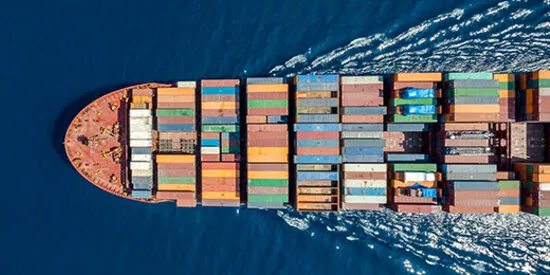
MLETR: A trade momentum for a digital big-bang
‘’Paper-based transactions, which still dominate international trade, are a source of cost, delay, inefficiency, fraud, error and environmental impact’’(1), G7, gathered in London in April 2021, said.
It is true that International Trade has been one of the prime laggards in the journey towards digitalisation despite all the galloping developments in Technology. While businesses clearly watching us, expecting evolutions, pilots, proofs of concepts and other attempts made to digitise International Trade, we are yet far to see a widespread adoption of any technology across businesses and across countries.
Now, G7 ministers have delivered six important interventions, including a framework for G7 Collaboration on Electronic Transferable Records, in order to harness the opportunities that the digital economy presents. ‘’It is our shared view that by enabling businesses to use electronic transferable records we will generate efficiencies and economic savings. This will strengthen the resilience of our global economic system and play a crucial role in trade recovery across the G7’’. And the G7 meeting to conclude, appendix 4, ‘’We will work to promote the adoption of legal frameworks compatible with the principles of the United Nations Commission on International Trade Law (UNCITRAL) Model Law on Electronic Transferable Records 2017’’
Now, let’s get a better understanding of MLETR….
What is MLETR about?
MLETR2 stands for "Model Law on Electronic Transferable Records". Adopted on July 13th 2017 by UNCITRAL, the United Nation Commission on International Trade Law, MLETR consists of 19 articles followed by an explanatory note ‘’which provides background information to assist States in enacting its provisions and to offer guidance to other users of the text’’.
MLETR key provisions are as follows:
Technology neutral. MLETR accommodates the use of all technologies and all models (registries, token and distributed ledgers);
Functional equivalent. An electronic transferable record is functionally equivalent to a transferable document or instrument. If the law requires or permits the possession of a transferable document, that requirement is met with respect to an electronic transferable record (art. 8 to 11);
Robust. MLETR enables information that may not be included in a paper document (art. 6) and apply to ‘’any applicable industry standard’’ (art. 12);
Practical. An electronic transferable record may replace a transferable document or instrument (art. 17) and a transferable document or instrument may replace an electronic transferable record (art. 18);
Cross-border recognition. An electronic transferable record shall not be denied legal effect, validity or enforceability on the sole ground that it was issued or used abroad (art. 19).
Why does MLETR need to be adopted?
While most jurisdictions insist on paper-based negotiable instruments, MLETR enables the legal use of electronic documents both domestically and internationally, typically bills of lading, bills of exchange, promissory notes, warehouse receipts, International guarantees, Stand-by letters of credit, etc. thus conferring the electronic records with the same attributes as paper documents. MLETR bestows the capacity - by law - to exchange original documents through any digital channel, including Swift, instead of courier, and fully aligned with the rules under eUCP600 and eURC522.
Therefore, using digital documents / electronic records instead of paper documents will enable corporates, banks, and all stakeholders belonging to the Trade Finance ecosystem to remove unnecessary bureaucracy, reduce costs and delays, speed up the transactions and increase the overall profitability.
MLETR, by disrupting the paper world, paves the way to digitalisation, propels Trade Finance into the 21st century and may consequently attracts the young talents that our industry definitely needs.
Will this adoption be enough to get rid-off paper-based transactions and benefit from a fully digitised setup?
So far, only a very few numbers of jurisdictions have adopted MLETER, among which Bahrain (2019), Singapore and Abu Dhabi Global Market3. Further to Covid impacts, many countries have now launched important initiatives to support MLETR adoption, mainly under ICC4 governance. Until larger adoption, Trade Finance digital ecosystem is doomed to rely on club deals, rulebooks and other private law contracts that certainly create a dedicated electronic environment but at the same time causes legal challenges to participants and remain extremely limited to a very small number of transactions.
Once MLETR widely adopted, Trade Finance will run more digital, avoid millions of documents and tons of papers for the benefit not limited to the Trade Finance industry.
Further to the wider adoption of MLETR, our activity shall not switch from 0,1%5 to 100% electronically. Although paper-based transactions will not disappear with MLETR, the level of adoption should drastically decrease for the benefit of the whole Trade Finance industry.
Conclusion. Not all is rosy of course as major constraints still need to be tackled in many jurisdictions in the path to global adoption of MLETR6. But the pace of change has been blistering. Over the recent months and years, the whole international trade ecosystem clearly enjoys a huge acceleration, a ‘‘momentum for a digital big-bang’’ leading all stakeholders, corporates, banks, carriers, etc., to thrust legal adoption of electronic documents/records. Thus, we feel very confident that, thanks to ICC support and leadership, MLETR will soon be adopted by a growing number of countries, including inside G7.
[1]G7 Digital and Technology Ministers’ declaration – London, 28 April 2021
[2]https://uncitral.un.org/sites/uncitral.un.org/files/media-documents/uncitral/en/mletr_ebook_e.pdf
- [3] Source : https://uncitral.un.org/en/texts/ecommerce/modellaw/electronic_transferable_records/status
- [4]Paris WG under ICC French National committee, led by Axel Lemaire, Roland Berger Partner and Head of Terra Numerata, former French minister responsible for Digital Affairs from May 2014 to Feb. 2017
- [5] Source ICC: 0,1% of B/Ls issued electronically in 2020.
- [6]As an example, MLETR adoption in the French law requires to amend no less than 3 codes (Commercial, Transport and Civil codes) + publication of an order / decree that includes MLETR and gives all indications to establish the reliability and security of the methods provided in the Law.




